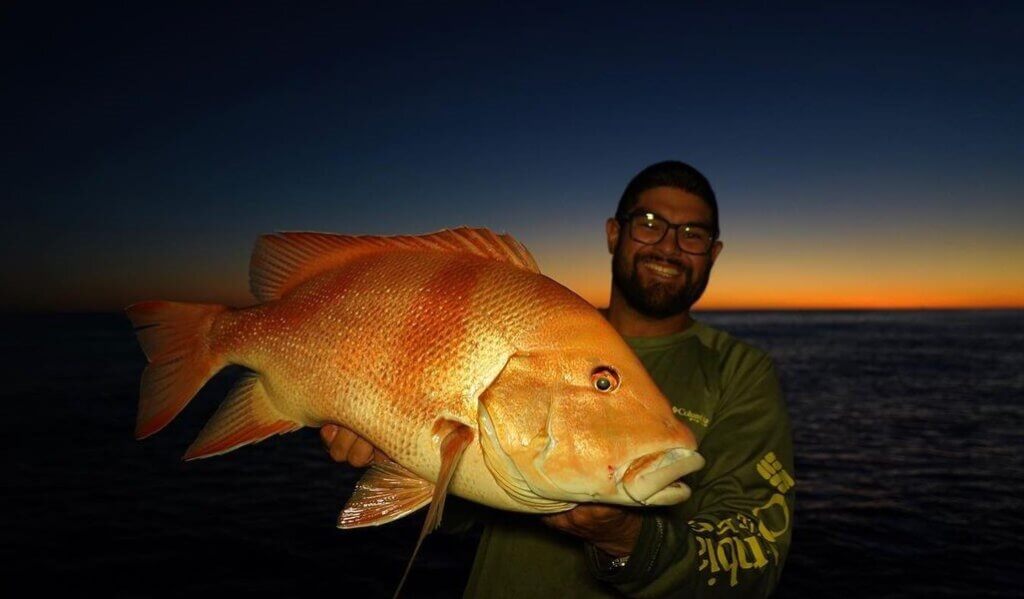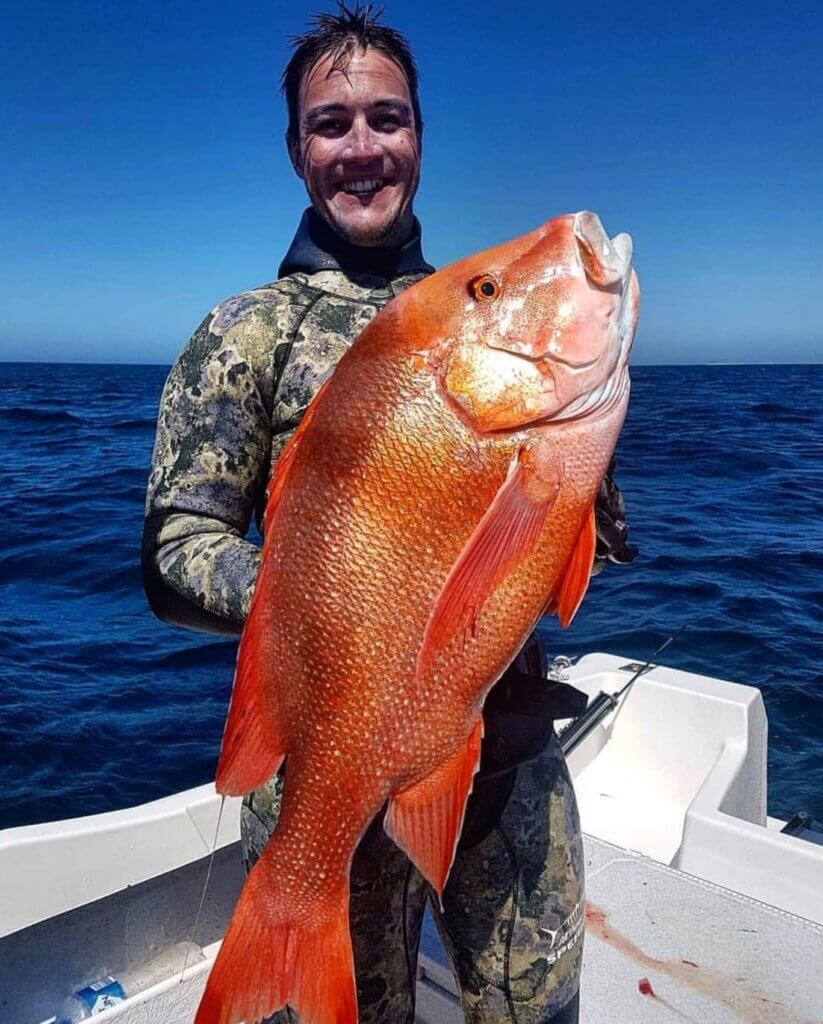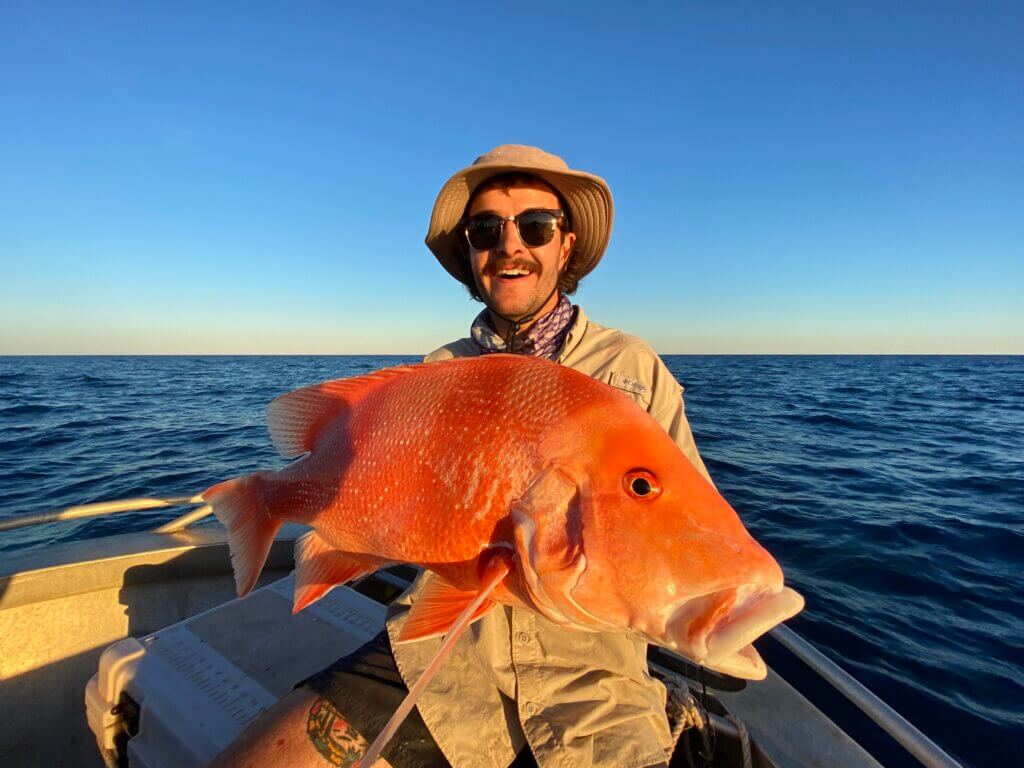Red emperor are fittingly named, given the species does indeed sit atop the throne for many demersal fishers in the northern half of WA, writes Western Angler editor Scott Coghlan in this week’s anticipated edition of Scott’s Species.
Species: Red emperor, Lutjanus sebae
Eating: 4.5 stars
ID: Striking red colouration, with bands down the side.

Often when visitors arrive in places like Shark Bay, Exmouth, Carnarvon and Onslow the first thing they want to know is where to find red emperor!
However, such information is rarely shared freely as locals protect their prizes spots.
Reds are found from Kalbarri in WA north and across to southern Queensland. They can grow up to 22kg, but few are seen more than 15kg and most fish will under 10kg.

The best I have seen, at the Mackerel Islands, was around 12kg. They are usually encountered in depths greater than 20m, often from 50m to 70m, and often encountered in schools around reef edges and bommies.
Surprisingly good reds can be caught in water around 20m deep, so you don’t necessarily need to go really wide to find them.
Drifting around likely spots is the usual approach but anchoring and burleying is also productive and I have seen this work very well at the Mackerel Islands for Darryl Hitchen.
The key with reds is to get them off the bottom quickly when hooked as they are a powerful fish.
WATCH: Red emperor schooling at Exmouth’s King Reef
Due to this, main line of at least 23kg is favoured, with heavier leader. Sadly, sharks are also an issue in many spots where reds are prevalent and can make landing them very tough if not impossible at times.
Braid is the best option for the main line, as it lessens the bow in the line caused by fishing at depths.
Standard boat fishing tackle will suffice. Bigger fish are often encountered after dark and this is a great time to fish for them if possible.
Popular baits include squid, octopus and pilchards and they definitely appear to bite better on bait than artificials.
Weighted soft plastics also work, but red emperor are not as responsive to metal jigs as many other demersal species.
